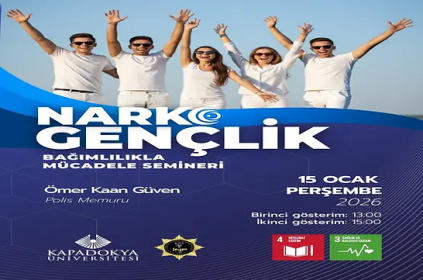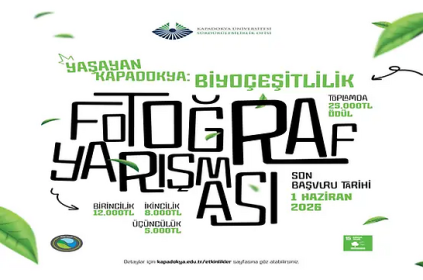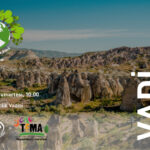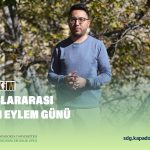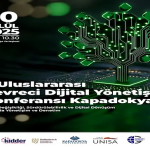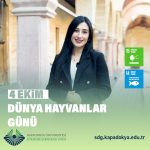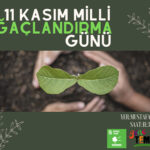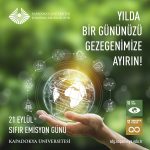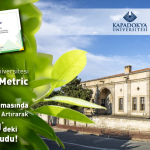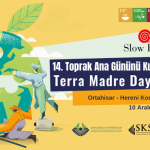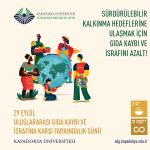The 1st National Environmental Humanities Conference was hosted jointly by our university’s Faculty of Humanities and the Center for Environmental Humanities Practice and Research.
Held online in Turkish on May 27-28, 2021, the conference featured prominent national and international academics. It aimed to build bridges between humanities and natural sciences while raising awareness across various disciplines. With 5 keynote speakers and paper presentations moderated by Dr. Sinan Akıllı, the conference included 25 presentations spanning literature, art, sociology, architecture, anthropology, geography, education, economics, communication, and urban planning.
Tezcan: Our University Values Environmental Consciousness
In her opening address, Faculty of Humanities Dean Prof. Dr. Nuran Tezcan stated: “Kapadokya University has pioneered Environmental Humanities initiatives. We demonstrate our commitment to environmental awareness at every opportunity – even gifting trees to female academics through TEMA Foundation on Women’s Day. Throughout history, humans have expressed their deepest fears, loves, respect and passions through nature – likening beloved ones to garden flowers.”
Oppermann: We Oppose Nature-Exploiting Relationships
Prof. Dr. Serpil Oppermann, Director of the Center for Environmental Humanities, explained the conference’s purpose: “This gathering unites Turkish researchers in Environmental Humanities to foster interdisciplinary dialogue and collaboration. The field critically examines humanity’s complex, nature-exploiting relationships while addressing global ecological crises through socio-cultural lenses. We view ecological protection as an ethical imperative for future generations and all living beings.”
Tekin: Our Species Remained Unchanged for 100,000 Years
Following opening remarks, Assoc. Prof. Dr. Halil Tekin (Hacettepe University) presented on “Prehistoric Human-Environment Relations in Anatolia.” His talk traced Homo sapiens’ 300,000-year history, noting our species remained relatively unchanged for 100,000 years before stone quarries and mining triggered widespread deforestation and environmental degradation.
Aytekin: 401 Species Face Extinction Risk
Author Y. Haluk Aytekin presented on “Ecological Destruction in Türkiye and Wildlife Impacts,” highlighting our continent-level biodiversity while warning 401 species face extinction. Emphasizing literature’s role in fostering environmental love, he stressed that broken food chains ultimately harm humanity too.
Dalfes: Students Need Humanities Exposure
In “Global Change and ‘Two Cultures’: Where Do We Stand?”, Prof. Dr. Nüzhet Dalfes referenced C.P. Snow’s “Two Cultures” lecture, questioning whether we successfully bridge sciences and humanities. She advocated mandatory humanities/social science courses to develop linguistic familiarity and emphasized environmental historiography’s importance.
Hasta: On Human Nature and Pro-Environmental Behavior
Ankara University’s Assoc. Prof. Dr. Derya Hasta shared psychological insights on “Pro-Environmental Behaviors,” analyzing how political views, authoritarianism, social dominance orientation, and moral foundations shape humanity’s exploitative tendencies toward nature.
Uzuner: “Cultures Need Philosophical Histories and Myths”
In a climate fiction dialogue with Assoc. Prof. Meliz Ergin, author Buket Uzuner discussed environmentally-conscious writers (Hikmet Birand, Yaşar Kemal, Ursula Le Guin) and literature’s role in climate solutions. Referencing 3000-4000 year-old Turkish tree ethics and Aldo Leopold’s land ethic (“A civilization’s highest task is learning to live on land without ruining it”), she concluded: “No culture survives without philosophical history, myths, and stories.”
The conference concluded with a Q&A session.



